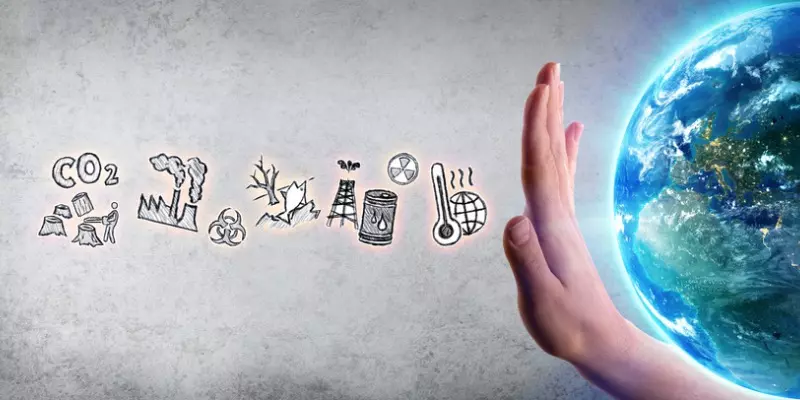
How would you feel if you had to wait 10 years or longer to get an accurate diagnosis of a medical problem like cancer, heart disease, or liver disease? It seems unconscionable. Unfortunately, that’s what happens to more than one-third of people with bipolar disorder, according to research in the Journal of Affective Disorders. It takes a decade or more for them to get diagnosed. And the average length of time to get a bipolar disorder diagnosis is 7.5 years, according to other research in the same journal.
An astounding 69% of people with bipolar disorder are initially misdiagnosed. Getting an inaccurate diagnosis leads to treatment that is not only ineffective but that can also make the condition worse. It’s one of the reasons why bipolar disorder can be so destructive and can ruin your life. Imagine taking medicine for a heart condition for years and then finding out you actually had cancer.
Why is bipolar disorder so hard to diagnose? There are several reasons, but first, let’s take a closer look at the condition.
What is Bipolar Disorder?
Bipolar disorder is a cyclic mood disorder that includes both manic episodes and depressive episodes. These episodes are associated with dramatic changes in moods, energy levels, and activity.
Manic episodes are characterized by:
- an abnormally elevated mood
- inflated self-esteem
- grandiose ideas
- racing thoughts
- poor judgment that leads to risk-taking behavior
- a decreased need for sleep
- delusions or hallucinations
Depressive episodes are associated with:
- sad or negative moods
- loss of interest in usually pleasurable activities
- feelings of helplessness and hopelessness
- decreased energy
- suicidal thoughts and behavior
5 Reasons Why Bipolar Disorder is So Often Misdiagnosed
1. It often starts with depressive symptoms.
One of the reasons why this condition is so often misdiagnosed is because the first signs are often depression rather than mania, according to a review in the journal Psychiatry. This means many people seek treatment for depression and are often prescribed antidepressants, which aren’t effective for bipolar disorder. As a result, nearly 40% of people with bipolar disorder are initially diagnosed with depressive disorder.
2. Co-occurring mental health conditions.
Among people with bipolar disorder, 62% also meet the clinical criteria for ADD/ADHD, according to a study in Clinical Psychology. Anxiety disorders, panic disorders, obsessive compulsive disorder, social phobias, eating disorders, and some personality disorders are also seen with bipolar disorder. In children and adolescents, bipolar disorder may also co-exist with oppositional defiant disorder and other conduct disorders.
3. Co-existing substance abuse.
Adding to the difficulty of getting an accurate diagnosis is the common abuse of alcohol or drugs among people with bipolar disorder. Some studies have noted that in people with the condition as many as 69% abuse alcohol and up to 60% abuse drugs. Substance use can cause symptoms that are similar to those seen in bipolar disorder, including emotional highs and lows and major swings in energy levels.
4. Hidden brain injuries.
At Amen Clinics, the global leader in brain health, brain SPECT imaging reveals that many people who have been diagnosed with bipolar disorder have signs of undetected traumatic brain injury. Head trauma can cause many of the same symptoms seen in bipolar disorder. Among patients at Amen Clinics, healing the brain can be beneficial in decreasing those symptoms.
5. Medication isn’t the only option.
In the traditional medical and psychiatric community, bipolar disorder is generally treated with medication. The psychiatrists and physicians at Amen Clinics are not opposed to medication, but it should never be the only thing you do for your condition. Adopting brain healthy habits—including healthy nutrition, exercise, lifestyle changes, nutritional supplements, and helpful forms of therapy— in addition to medication (when necessary) can be powerfully beneficial components of an effective treatment plan for bipolar disorder.
Bipolar disorder—as well as ADD/ADHD, anxiety, and other mental health issues—can’t wait. During these uncertain times, your mental well-being is more important than ever and waiting until life gets back to “normal” is likely to make your symptoms worsen over time.
At Amen Clinics, we’re here for you. We offer in-clinic brain scanning and appointments, as well as mental telehealth, remote clinical evaluations, and video therapy for adults, children, and couples. Find out more by speaking to a specialist today at 888-288-9834. If all our specialists are busy helping others, you can also schedule a time to talk.





This was an insightful article. I was finally diagnosed bipolar well into adulthood…even though I showed signs of depression in my teens. I often wonder though if I was misdiagnosed because my problems started when I started puberty. Every time that I go through certain times in my cycle my mood, energy level (sleepy ness or lack of sleep, anxiety levels, food cravings, and weight changes. I did a lot of my own research and found that severe PMS is a thing. It’s called PMDD…PreMentrual Disphoric Disorder. I am still labeled “bi-polar” and have been on medications since I was in my twenties. I am now approaching 48 years old. I’m tired of fighting hormones and ignorant people. What can I do to get a brain scan and what else might be the issue?! I am in the Cleveland, Ohio area.
Comment by Mary Rutter — September 23, 2020 @ 7:19 PM
I would like to get my brain scanned to see if I have a brain injury
Comment by Melanie k Perry — September 28, 2020 @ 3:20 AM
around the time I turned 19 I was finally diagnosed with depression and would try multiple medications through my life and am now on Effexor. I was always moody as a teenager and still can get very emotional and just cry even when I wan’t to be strong. I constantly show signs of obsessive compulsive disorder, always checking on boyfriends fearful they were cheating on me. I also can become quite angry and shout and yell when I become upset. I also have anxiety disorder, and have trouble meeting new people and usually am nervouse but better meeting new people one on one. I was diagnosed with Bipolar disorder but once i had to move am only being treated for major depressive disorder. i don’t make enough for a scan but need help. I am trying to see a new Psychiatrist but would like your suggestions. thank you for any help you can offer
Comment by Rae Michelle Cihalski — September 28, 2020 @ 3:45 AM
it took me 3 years to get diagnosed with bipolar disorder.
Comment by robin cockrum — September 28, 2020 @ 4:09 AM
Does anyone anywhere ever consider that all of these psychological problems are really spiritual problems? Demonic oppression and even possession are more real than most people want to accept. They come to kill, steal, and destroy….
Comment by Sterling — September 28, 2020 @ 4:40 AM
My son suffers from Tourette Syndrome, Bi-polar, ADHD & I am sure other co-exisiting ailments. Does insurance cover a brain scan and once completed , does Amen Clinics have method other than tradional treatments for this? Thank you.
Comment by Victoria Bell — September 28, 2020 @ 5:31 AM
Where are you located? My son needs help.
Comment by Jane bullock — September 28, 2020 @ 9:37 AM
You probably get thousands of emails so chances are you don’t remember the one I sent this past year about my bipolar diagnosis. Unfortunately, I wasn’t so lucky to as to be diagnosed within ten years. It took thirty years. The reason? Arrogance. You see, I was pretty certain after about the first 5-10 years what was going on with me because bipolar disorder runs in my family. So, ignorant me, I thought if I brought this to the attention of the physicians I was seeing, it would help with my treatment. WRONG!!! It did exactly the opposite. They deliberately did exactly the opposite. They REFUSED to treat me for bipoloar disorder, and when I say “they” I mean just about ALL of them. I went through probably a dozen “professionals” before I finally found a primary care physician who actually listened to me and agreed to treat me. It took three days for the meds to work, and I haven’t had a problem since then. THIRTY YEARS of destruction could have been avoided if a dozen so-called professionals could have just put their egos aside and put their patient first. Needless to say, I don’t have a lot of respect for doctors, and I don’t take any crap off of them anymore either.
Comment by Penelope Malcolm — September 28, 2020 @ 10:22 AM
This article is incomplete. What makes it hard to diagnose bipolar is that manias can be mild (hypomanias) and hence, be overlooked or seen as simply good
or normal days/weeks. So the parient is diagnosed as unipolar rather than unipolar. I believe bipolar patients need meds (mood stabilizers). Lifestyle improvements will help but not enough for this serious condition.
Comment by Melanie Hall — September 28, 2020 @ 12:20 PM
In my previous comment, I should have written:…. “rather than bipolar”, not unipolar.
Comment by Melanie — September 28, 2020 @ 12:23 PM
You know if you can’t afford the treatment there’s not much use in going any farther. I was in a spravado treatment. Experimental 2 hour treatment once a week for 9 weeks. I had to be driven there and had to have someone pick me up 2 hours later. Due to the effects on blood pressure. It started out costing me $100/mo. After that my insurance wouldn’t cover any more treatments. So in order to continue my monthly out of pocket costs would have been around $400/month. I don’t know many people who could afford that. So my “experimental treatment” stopped. No doubt I suffer from depression Bipolar depression was a recent diagnosis. After 50 years of not being able to help my “character defects” I finally accepted that I could not FIX myself. I am a Christian with a strong spiritual belief. I listened to and read every self help book or program I came across. I used alcohol and drugs to self medicate. I’ve been in therapy for over 20 years and tried multiple medications (all with side affects). I have no idea what you think you can do to help people like me. Not every day is bad. But I now recognize – it’s not my fault! And I’m now working on accepting myself (along with others). I’m a member of aa and have always been a functioning alcoholic. I hate to even say that. Sometimes the hurt I feel is more than I can stand. Especially if I feel responsible for hurting someone else. The stigma attached to this disease doesn’t help. My grandfather was an alcoholic and eventually had shock treatments and my aunt also. I never saw any improvement for them. I would never consider them as a treatment for me. So where does that leave people like me in your circle of influence?
Comment by Donna smaldino — September 28, 2020 @ 7:32 PM
I have been trying to find a doctor for mental for over 6 months with no luck
Comment by Janet Hale — September 28, 2020 @ 10:46 PM
What about schizophrenia?
Comment by Jill — October 1, 2020 @ 5:53 PM
I see that several people left comments. Where do we find answers?!
Comment by Mary — November 15, 2021 @ 4:58 PM